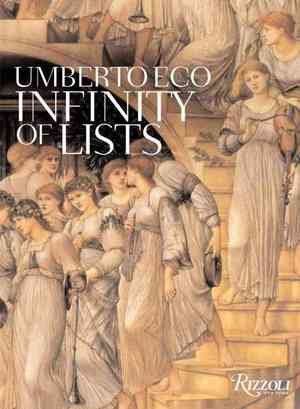Best-selling author and philosopher Umberto Eco is currently resident at the Louvre, and his chosen theme of study is "the vertigo of lists." Reflecting on this enormous trove of human achievements, in his lyrical intellectual style he has embarked on an investigation of the phenomenon of cataloging and collecting. This book, featuring lavish reproductions of artworks from the Louvre and other world-famous collections, is a philosophical and artistic sequel to Eco's recent acclaimed books, History of Beauty and On Ugliness , books in which he delved into the psychology, philosophy, history, and art of human forms. Eco is a modern-day Diderot, and here he examines the Western mind's predilection for list-making and the encyclopedic. His central thesis is that in Western culture a passion for accumulation is recurring: lists of saints, catalogues of plants, collections of art. This impulse has recurred through the ages from music to literature to art. Eco refers to this obsession itself as a "giddiness of lists" but shows how in the right hands it can be a "poetics of catalogues." From medieval reliquaries to Andy Warhol's compulsive collecting, Umberto Eco reflects in his inimitably inspiring way on how such catalogues mirror the spirit of their times.


